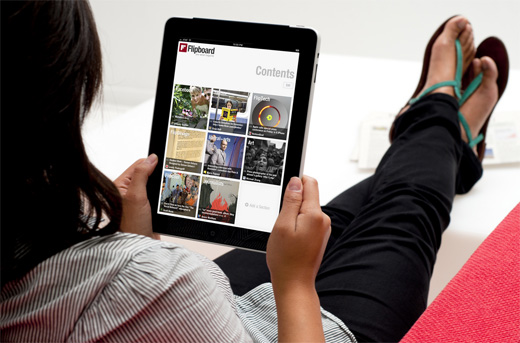“Think of a number, quarter it, and you’re still not there.”
This was Annemarie Kirk’s answer when asked what her budget was for developing Danish newspaper Berlingske‘s first iPad app to be launched later this month, which she showcased yesterday at the World Editors Forum in Hamburg.
A shoestring budget and a small team were both necessities in developing the business news app and driving forces behind it. Find talented people in your newsroom, young people who will see things differently and get them to work on it, said Kirk. Don’t overlook existing skills though: much of the design for the new app was done by a newspaper designer from Berlingske’s print edition who had never even worked on design for the website. He was set to work on the iPad app though, alongside an external web designer brought in for the project.
The application, which is awaiting approval by Apple, will combine content from the print and online editions of the business section through a semi-automated process, said Kirk. Concept design and project management were carried out in Denmark and technological development in Kiev, Ukraine following a study into what applications and devices Berlingske should be launching onto, that began back in March.
It’s clear from the development that has taken place this has been a tightly managed project, but Kirk said there has been a real need to get onto the iPad, despite the device not being on sale in Denmark, as traffic stats show a significant growth in the number of users accessing the Berlingske website via an iPad.
Fellow panellist at the WEF event, Alfredo Triviño, who as director of creative projects at News International has overseen many of the publisher’s iPhone and iPad application developments, said the success of building apps for “liquid media” devices relies on understanding the technological boundaries.
“Tablets are not websites, they’re not newspapers, magazines or books. Not all of our content we produce is consumed. (…) probably we need tablet newspapers,” he said.
“Loading time is critical and progressive downloading is a must (…) Success also grows from envisioning what is next.”
When developing apps for tablet devices, news organisations must look out how these apps will scale and be iterated.
Speaking to Journalism.co.uk after the debate, he said news organisations will have to reassess their plans when the next wave of technology comes to tablet devices, including built-in cameras and better integration with social media. Hear more of what he had to say in our WEF podcast at this link.
Speaking more generally, president of media for Thomson Reuters, Chris Ahearn, said that “whether it’s a tablet or a smartphone or a device we haven’t seen yet” news organisations have to embrace change. As an industry they must “lean into the wind together” and, to make these new apps part of a successful business model to support journalism, “collectively rise”.
When designing apps or tablet propositions, news organisations must look at what their readers and consumers want and need, and build a subscriber base, he said.
How can we add unique value to each subscriber? The answer for us is not always more content. It has to include more services. We have to embrace the technological advances to build compelling user experiences. We have to put that content into context and develop a loyal customer base.

